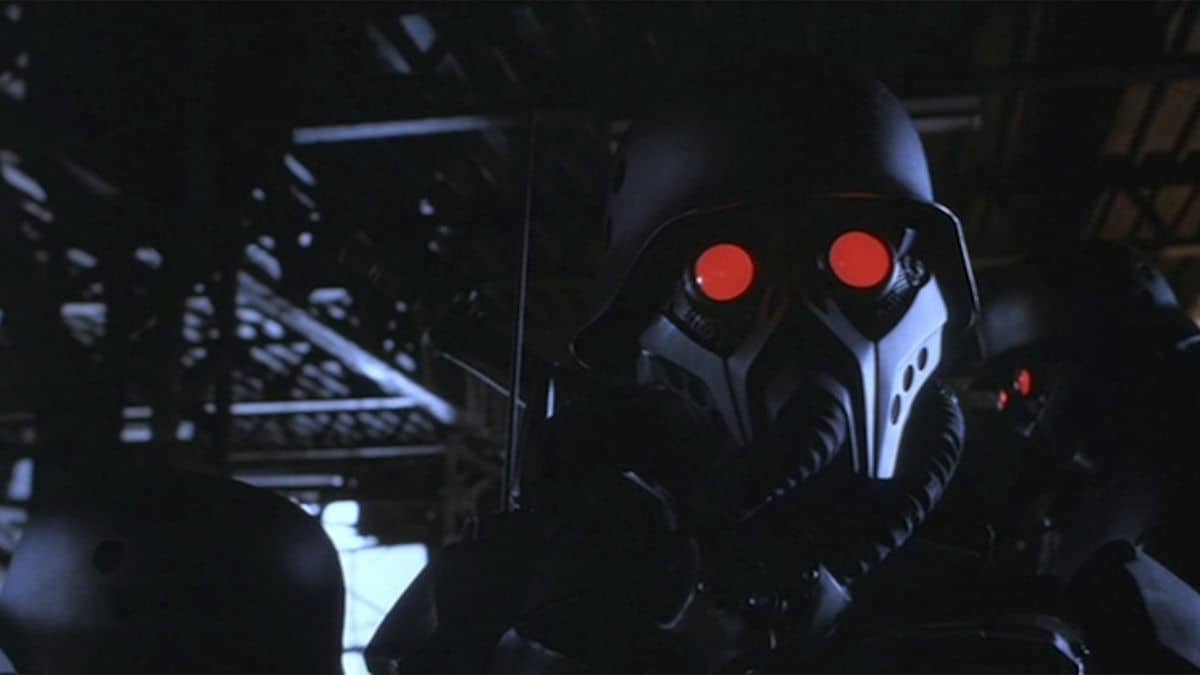Sisyphean is the ennui rampantly in situ within the modern life architecture. A void of degradation, of scintillating deception, its barbaric psychosis does not so much ensnare its occupants as it does digest their capacity to exist outside its sphere of influence. Out of its relentlessly turning cogs emerge identical faces, diluted and filtered to resemble mirror images of a central unifying idea – a world long prophesied and dreaded within the arts. Out of this humdrum existence, it only takes a spark to ignite the incendiary desires of a nihilistic teen longing for purpose – just a few millimetres of alcohol waiting for a cigarette to meet its inevitable, timely demise can, in the eyes of Ken Ninomiya's mesmerizing “The Midnight Maiden War”, tilt the balance off its axis and verge towards chaos.
The Midnight Maiden War screened at Camera Japan

A listless student by day and a laborer at a flower warehouse by night, Watashi (Ren Nagase) despairs at the state of contemporary life, bemoans the system he feels trapped in, and harbors a desire to blow up Tokyo Tower. This is until he meets Sempai (a constant scene-stealing performance from Elaiza Ikeda) at an exclusive, invitation-only hide-and-seek club with whom he develops a kindred connection. As he prepares to hand in his scholarship paperwork, he encounters a man he simply calls Kurufuku (the utterly magnetic Tasuku Emoto), a wealthy and charismatic individual who delights in upsetting the status quo, triggering a fire on campus. Foiling an attempt to catch him, Watashi follows the enigmatic Kurufuku and together they bond over cinema and find The Midnight Maidens, a group of down-on-their-luck individuals with the intent of bringing the city down to its knees.

Though it is enticing to draw comparisons to David Fincher's Fight Club, the melancholia, nihilism, and pseudo-Nietzschean tendencies Ninomiya's film overdoses on are distinctly Japanese and, as such, ooze with a reemergent vogueishness at every opportunity. Overflowing with swagger and plenty of electrifying sequences, the film's narrative grips its audience for an indulgent joyride throughout Tokyo, and the bromantic rapport between Nagase and Emoto makes it all too easy to fall for their cause. As their underground movement swells and its reach impossible to contain, so too does its violent escalation from harmless pranks to wanton destruction; Ninomiya succeeds in rendering his viewers just as helpless as his protagonist is lost in a world of mediocrity. Mediocrity he may face, but Watashi's world is one where light and shadow coalesce in harmony, phantasmagorically shot by Ninomiya and Yusuke Tsutsumi with ingenious fervor – that bowling alley scene alone exudes radiant coolness.
But Ninomiya's film is more than a Palahniukian descent into societal collapse. Simultaneously racing with the narrative, which flounders somewhat in the middle before its jaw-dropping final act, is a love letter to the cinematic art as well as the cinematic space. Befitting a lonely world where streaming services have overtaken television as cinema's enemy, Kurufuku's pad preserves exhibition as much as it revels in it: “an inconceivable space existed in an inconceivable place” mutters Watashi in his narration. There is a longing for this reclamation of cinema as much as Ninomiya's film bleeds with anguish. On the flip side, “Midnight Maiden War” also delights in enveloping itself with movie motifs, gleefully paying homage to movies of the ‘90s and ‘00s with frivolous aplomb.
A heavily stylised affair which mirrors the sedated dreaminess of Iwai's “All About Lily Chou-Chou” and Nakashima's “Confessions”, what drives “The Midnight Maiden War” further into overdrive is its captivating cast: Ikeda and Emoto are inimitably sublime as Watashi's yin and yang; both actors simply imbue the screen with the same incandescence as the color and lighting department bring to the sets. Here, Ninomiya proves himself as the imminent master of moody cinema, as not only does he bring an urgent contemporary grounding to the fantastical plot thanks to some choice soundtrack decisions but also infuses mood with color and tone. A marriage of red and blue hues with a somber score and sound design perfectly captures the sobering reality of Watashi's life – one of unstoppable repetition – dulling the senses toward total vulnerability, one which the brutally honest yet heartachingly tender window-lit scene towards the film's end frames perfectly.
Superbly scripted with profound yet quotable dialogue every step of the way, “The Midnight Maiden War” feels simultaneously ahead of its time and trapped in its cinematic past. Though its themes of nihilism and alienation run consistently throughout, the film develops and grows gracefully throughout its near two-hour runtime, becoming so much more than its inception would have you believe; its narrative, after all, comes second only to its resilient tone, moodiness, and sensational cast. Ninomiya has a penchant for brilliantly capturing the painstaking loneliness of contemporary society and his efforts in adapting F's 2018 coming-of-age novel are intoxicating – it is simply impossible to not imbibe this dark and brooding film without succumbing to its luring charm like a moth to a flame.















